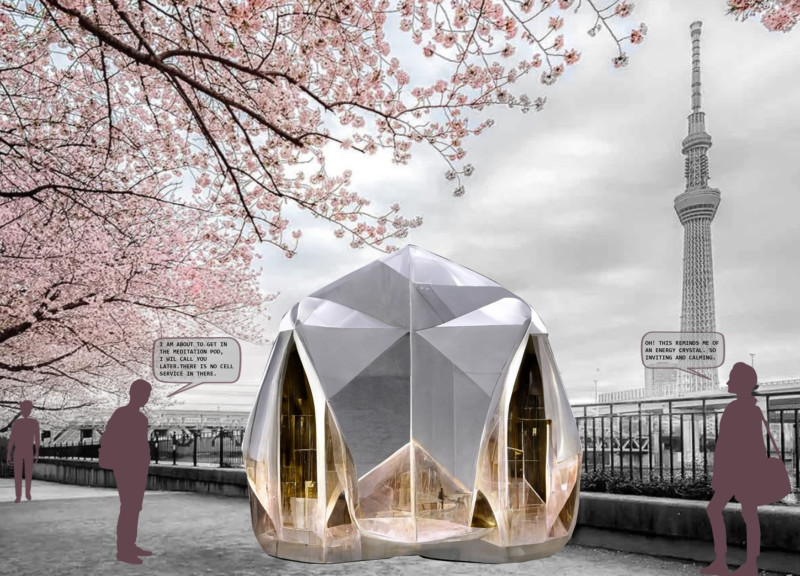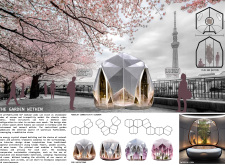5 key facts about this project
"The Garden Within" presents a series of modular pods designed to create tranquil spaces for meditation within an urban setting. These prefabricated structures stand alone, offering a retreat from the hustle and bustle of city life. The design concept focuses on establishing harmony between people and nature, emphasizing a layout that encourages reflection and well-being.
Spatial Configuration
The pods are arranged in a beehive-like pattern, which allows for both individual privacy and opportunities for communal interaction. This arrangement helps users find their own space while also promoting connections with others. By clustering the pods together, the design fosters a sense of community while accommodating diverse needs.
Centralized Garden
A prominent feature of the design is a centralized garden that serves as a calming focal point. This garden symbolizes spiritual fulfillment and invites users to engage in meditation and relaxation. Its natural elements enhance the visual appeal, creating a refreshing contrast to the urban surroundings and encouraging an experience of tranquility.
Architectural Form
The shape of the pods is inspired by energy crystals, characterized by gentle, flowing lines. The design aims to create an inviting atmosphere that resonates with users. The use of natural colors and patterns throughout contributes to a peaceful environment, making the spaces feel comforting and nurturing.
Material Considerations
Materials such as tatami floors, wooden accents, and warm tones are integrated into the interior design, drawing from traditional Japanese influences. These choices help create a soothing ambiance that supports well-being. The careful selection of materials reflects a commitment to sustainability and enhances the overall experience within the pods.
Through attention to detail, the design offers features such as pitched roofs that promote privacy. The sustainable construction methods ensure a lasting connection with the environment, inviting users to appreciate both their surroundings and their own inner peace.



















































